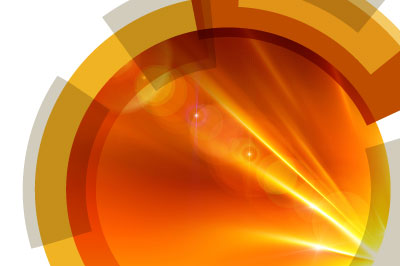This event will involve: i) a keynote lecture from Professor Sir Shankar Balasubramanian, University of Cambridge; ii) a panel discussion on disruptive startups being key to UK economic growth and
ii) an SME showcase and networking event
Keynote lecture: Reading your DNA: What can it tell us?
DNA is a linear molecule made up of four building blocks, often abbreviated to the letters G, C, T and A. The sequence of these four letters constitutes a code that comprises 3.2 billion letters in a copy of the human genome. The International Human Genome Project used an approach developed by Fred Sanger to generate the first human genome reference in a global collaboration that spanned a decade. Over 20 years ago, during the course of some basic scientific experiments, a collaboration with David Klenerman and our co-workers, unexpectedly led us to conceive and then pursue a different way of sequencing DNA. The initial experiments ultimately led to a rapid, low-cost sequencing approach, which was developed and commercialised through a company we co-founded, called Solexa. Today the technique is able to sequence human, and other, genomes at a cost and speed that shows over a million-fold improvement compared to when we began the project in 1997. I will also discuss the impact of the technology on life sciences, medicine and society along with a vision of what the future holds.
Biography
Sir Shankar Balasubramanian is the Herchel Smith Professor of Medicinal Chemistry at the University of Cambridge and senior group leader at the Cambridge Institute. He works on the chemistry, structure and function of nucleic acids. He is a co-inventor of the leading next generation DNA sequencing methodology, Solexa sequencing (now Illumina) that has made routine, accurate, low-cost sequencing of human genomes a reality and has revolutionised biology. He has invented chemistry to decode several modified (epigenetic) DNA bases and DNA secondary structures (G-quadruplexes) in the genome and has made seminal contributions towards the understanding of their dynamics and function. His work on small molecule recognition of nucleic acids has revealed molecular mechanisms that can be exploited to modulate the biology of cancer. His collective contributions span fundamental chemistry and its application to the biological and medical sciences. Sir Shankar was knighted in the Queen’s New Year’s Honours in 2017 for his services to science and medicine and awarded the Royal Society’s Royal Medal in 2018. In 2021, he was awarded the 2020 Millennium Technology Prize jointly with David Klenerman and the 2022 Breakthrough Prize for Life Sciences jointly with David Klenerman and Pascal Mayer for their work on sequencing technologies.
ii) an SME showcase and networking event
Keynote lecture: Reading your DNA: What can it tell us?
DNA is a linear molecule made up of four building blocks, often abbreviated to the letters G, C, T and A. The sequence of these four letters constitutes a code that comprises 3.2 billion letters in a copy of the human genome. The International Human Genome Project used an approach developed by Fred Sanger to generate the first human genome reference in a global collaboration that spanned a decade. Over 20 years ago, during the course of some basic scientific experiments, a collaboration with David Klenerman and our co-workers, unexpectedly led us to conceive and then pursue a different way of sequencing DNA. The initial experiments ultimately led to a rapid, low-cost sequencing approach, which was developed and commercialised through a company we co-founded, called Solexa. Today the technique is able to sequence human, and other, genomes at a cost and speed that shows over a million-fold improvement compared to when we began the project in 1997. I will also discuss the impact of the technology on life sciences, medicine and society along with a vision of what the future holds.
Biography
Sir Shankar Balasubramanian is the Herchel Smith Professor of Medicinal Chemistry at the University of Cambridge and senior group leader at the Cambridge Institute. He works on the chemistry, structure and function of nucleic acids. He is a co-inventor of the leading next generation DNA sequencing methodology, Solexa sequencing (now Illumina) that has made routine, accurate, low-cost sequencing of human genomes a reality and has revolutionised biology. He has invented chemistry to decode several modified (epigenetic) DNA bases and DNA secondary structures (G-quadruplexes) in the genome and has made seminal contributions towards the understanding of their dynamics and function. His work on small molecule recognition of nucleic acids has revealed molecular mechanisms that can be exploited to modulate the biology of cancer. His collective contributions span fundamental chemistry and its application to the biological and medical sciences. Sir Shankar was knighted in the Queen’s New Year’s Honours in 2017 for his services to science and medicine and awarded the Royal Society’s Royal Medal in 2018. In 2021, he was awarded the 2020 Millennium Technology Prize jointly with David Klenerman and the 2022 Breakthrough Prize for Life Sciences jointly with David Klenerman and Pascal Mayer for their work on sequencing technologies.









